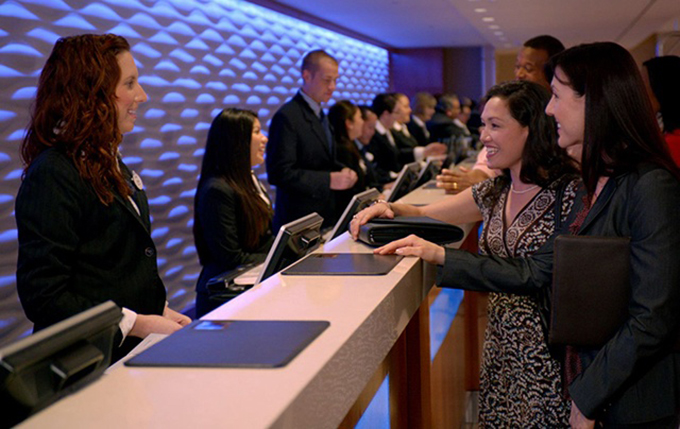What is CRM?
CRM, Customer Relationship Management.
It’s not a new concept, especially not for the Hospitality Industry. It is exactly what it says on the tin. It is all about building relationships with your customers, from their first interaction with your brand right through to customer service and beyond.

The practice existed long before the development of the computer. But, computers, the world wide web and all the applications these technology developments brought with them, have changed the way we manage and utilise these relationships. With it, came the birth of the acronym CRM and the systems it represents.
The days of guest books in hotel lobby’s, large filing cabinets and spreadsheets filled out by hand with all your enquiry and customer information are long gone, and only a small percentage of you will recall those days. But, the practice still remains the same. Today, rather than a guest book, the smart money would be investing in a tablet kiosk (or similar), which is connected to a CRM system that stores the data entered by guests to their customer profile. This is the bread and butter of a CRM system; storing collected customer data and providing easily referenceable metrics. They support your marketing and sales teams through every step of your customer’s journey and ultimately enable you to increase sales and customer retention.
The goal of implementing a CRM is to create a system that your sales and marketing teams can use and automatically supports them, to more efficiently and effectively interact with existing and potential customers or clients.
SIZE doesn’t matter
CRM systems are not just useful to large hospitality companies, they are essential to Hotels, Restaurants and Event companies of all sizes. Christopher Ratcliff provides a perfect analogy that is equally poignant as it is long in his article on Econsultancy.com, under the sub-heading CRM explained.
The argument being, if you only have a handful of customers, you may feel a spreadsheet and some simple rules between colleagues can get you by. But, what if (god forbid) your business hits its targets and you double or quadruple your customer base, let alone the additional prospects and visitors to your website… this could get a bit messy and end up costing you resources and time.
CRM systems aren’t closed off personal accounts, they track every interaction visitors, prospects and customers have with your company and make the information available to your entire team. So if Katherine, suddenly comes down with the flu and is off work at a key stage in a customer’s transaction, a colleague can review the interactions by searching for that customer on the CRM tool and pick up where Katherine left off.
So, how do your teams use CRM?
Marketers will often use a CRM to ensure that they’re passing the right leads to their sales team, which is a key aspect of developing a strong relationship with the sales team. They also use the tracking data available today through smart CRM systems to assess the success of certain types of content and distribution channels.
Salespeople utilise CRM in a different way. They use it to source prospective customers, communicate with them, and track their interactions over time. Having the entire prospect history in one place increases their efficiency and improves their productivity. For instance, salespeople using a CRM won’t have to hunt through their email to remember where a conversation left off.
CRM can also have a huge impact on improving your customer experience.
What does this mean for you?
According to Hubspot; 75% of sales managers say that using a CRM helps to drive and increase sales, also stating that CRM systems improve customer retention by 27%.
You can’t argue with those numbers.
“I think the acquisition of consumers might be on the verge of being mapped. The battlefield is going to be retention and lifetime value.” – Gary Vaynerchuk, via TechCrunch.
Like What You’ve Heard?
Further Reading: See why Salesforce CRM is a great fit for you.



